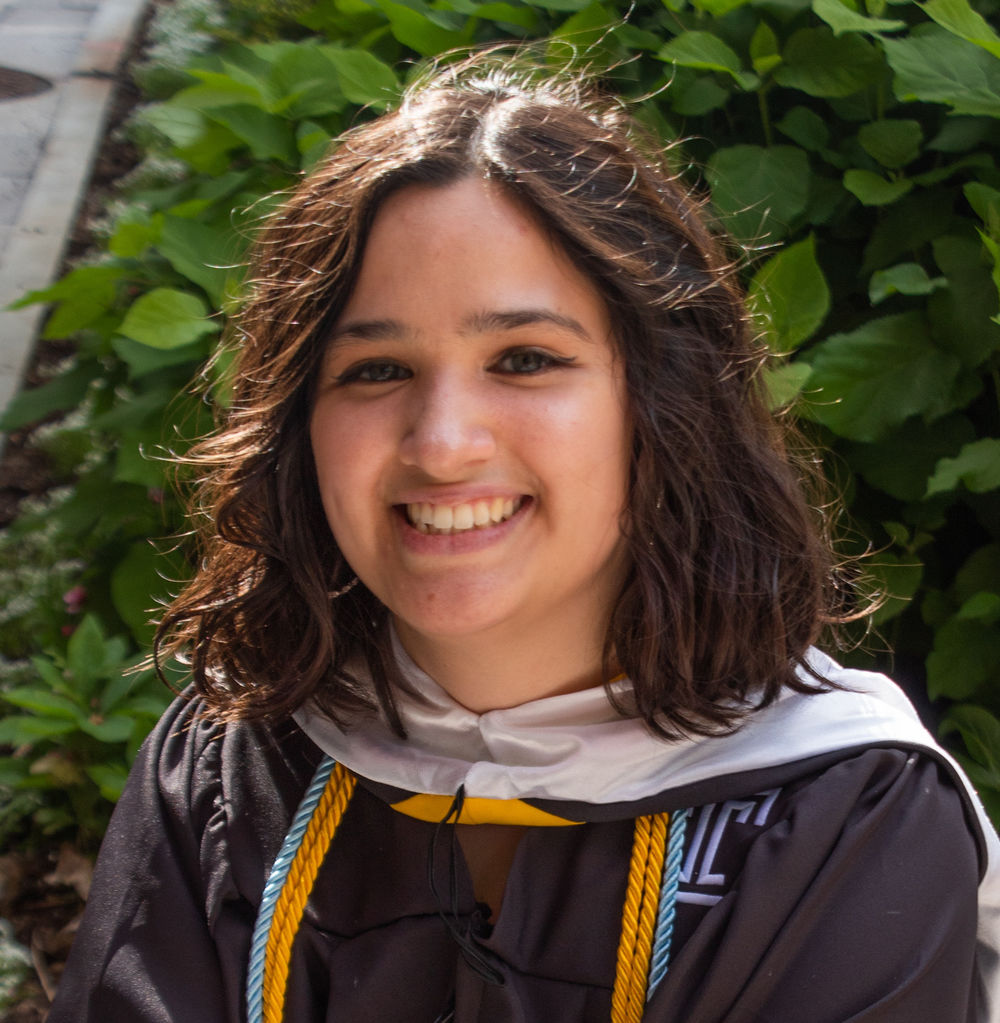
For recent College of Public Health graduate Samantha Padilla, CPH '23, what began as her curiosity about American Sign Language (ASL) led to an award-winning research paper about a troubling issue affecting the Deaf community. Padilla’s paper, “Creating Positive Change for Deaf and Hard of Hearing Individuals in the Philippines,” focuses on the prevalence of sexual assault perpetrated on Deaf people in the Philippines.
The paper won Temple’s Livingstone Undergraduate Research Award in General Education. It was written as part of an assignment—to create a Wikipedia page about a global Deaf issue—in the “The World of Sign Languages, and the Sign Languages of the World” class taught by Matt Hall, assistant professor of communication sciences and disorders.
Padilla, who graduated in May with a bachelor’s degree in health professions, had studied Spanish in high school and took an ASL class to try something new.
"I assumed it would be like any language class, learning vocabulary,” she says. “But the professors made it about the culture, and about how hearing people can be allies for the Deaf community.” She took multiple ASL classes, then a Deaf culture course, then “The World of Sign Languages,” in which Hall focuses on social rather than medical issues for deaf and hard of hearing people.
Padilla has Filipino heritage and, pulling together research from multiple studies, chose to highlight a disturbing trend affecting Deaf and hard of hearing (DHH) people in the Philippines. Rates of sexual assault, rape, molestation, and other forms of abuse are significantly higher against Deaf Filipinos than hearing Filipinos. The Philippine Deaf Resource Center (PDRC), she reports, found that rape is the most widespread crime against Deaf women. Another study found that 65-70% of Deaf children have been molested. Survivors may be unaware that what they’ve experienced is abnormal.
“The disparity of sexual assault rates between hearing and DHH Filipinos is astronomical, and it consists of a complex web of cultural and systemic issues,” Padilla writes. Among the issues, she writes, are a sexually repressive culture, low sexual health literacy, and language barriers for DHH people. While hearing people certainly face obstacles in reporting abuses, “there are extra obstacles for deaf Filipinos,” Padilla says. “There's a cultural stigma against Deaf people as well as a cultural stigma against sexual assault, sort of a double whammy.”
Padilla quotes JP Maunes, co-founder and CEO of Philippine Accessible Disability Services (PADS), who said: “If [DHH people] get abused, they cannot shout. When they report, no one understands them.”
According to PADS, there is roughly one sign language interpreter for every sixty Deaf people in the Philippines (most are in the largest city, Manila). Padilla cites a case mentioned in a prior paper where evidence given by a Deaf rape victim through an interpreter was classified as hearsay from a third person.
Her paper offers two potential interventions to create positive change, based on past research. She proposes educating Deaf and hearing Filipinos, through workplace training videos and informational posters hung in public places such as doctor’s offices and university campuses. Sample posters she created, in English and Filipino, have the bold headline “I think I was sexually abused. What do I do now?,” followed by explanations and advice. She also suggests training for employees in workplaces and educational institutions to increase understanding of the issue among hearing people.
Following her graduation, Padilla will work as a patient care technician at a local hospital. She intends to attend graduate school with plans to be a physician’s assistant.
“It was a huge honor to receive the undergraduate research award,” she says. “I’m happy this was recognized as important. It affects real lives, and it's an important problem to discuss so we can fix it for future generations of Deaf Filipinos.”
